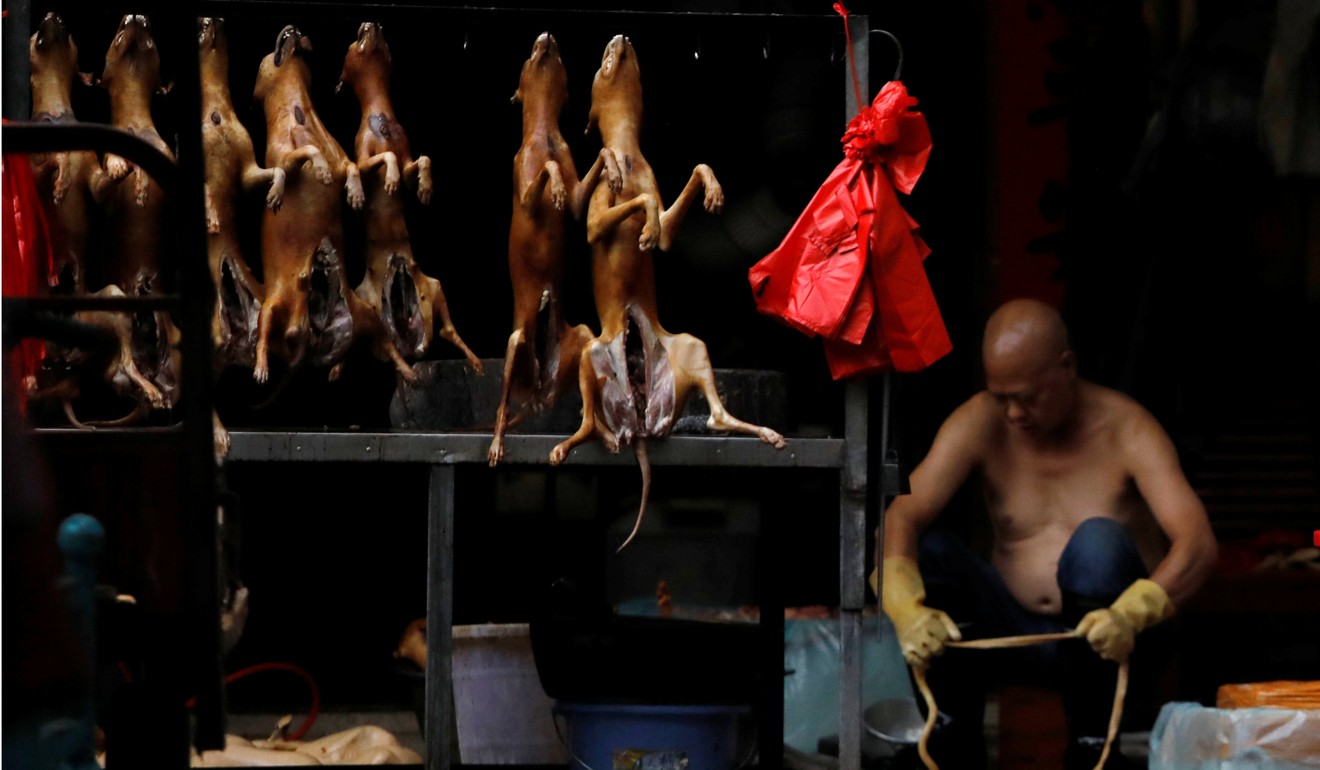
This Dog Lovers’ Day, let’s fight to end barbaric practice of killing canines for food
Hong Kong-based charity World Dog Alliance launched annual September 26 event to seek international ban on consumption of dog meat
The late creator of the world-famous comic strip Peanuts, Charles M. Schulz, got it right: “Happiness is a warm puppy.”
Many dog owners will tell you how their pets have changed their lives or made them a better person. It’s true that dogs make us happier, healthier, and help us get along better with each other and ultimately become better human beings.
It may be difficult to say for sure how many dogs there are in the world because many are strays or are not registered. But according to some dog charities and animal welfare groups, the consensus is between 500 and 600 million.
You probably think that’s a lot – and you’re right. But sadly it may not stay that way, because a big percentage of the dog population is being slaughtered across Asia every year. At least 30 million dogs are flayed, poisoned, bludgeoned to death or cooked alive to satisfy a growing appetite for their meat.
Yulin residents defend dog meat festival amid outcry
In mainland China, about one-fifth of the population still eats dog meat, as they hold a superstitious belief that it is a health tonic. Their consumption accounts for about half the annual slaughter in Asia. The dog flesh trade on the mainland has become an international focus and is widely condemned worldwide as a result of the notorious Yulin Dog Meat Festival held annually in June.
Outside China, serving up a dish of man’s best friend is not uncommon in many parts of Asia, where dog meat consumption is allowed or at least tolerated due to the gruesome culinary practice being rationalised as cultural tradition, as well as the lack of legislative measures to criminalise such cruel practices.
But to see these frightened animals being caged, killed, and turned into food is a cultural taboo in the West. There are many pet holidays and awareness days held around the world to raise public knowledge to prevent animal cruelty, many of which are dog-focused, such as the well-known annual National Dog Day in the US on August 26.
Meanwhile, a lesser-known equivalent is picking up momentum in Hong Kong and China thanks to the persevering efforts of the World Dog Alliance (WDA), a non-profit Hong Kong-based organisation dedicated to fighting for a worldwide ban on the consumption of dog meat.
September 26 has been named Dog Lovers’ Day by WDA, and it is the most important annual event for the charity since it was launched three years ago. In Cantonese, “9-2-6” sounds phonetically similar to gau yi luk, which literally means “dogs are easily happy”, but can also be read to mean these four-legged animals can easily make people happy.
It is the only annual event worldwide that is dedicated to raising public awareness of dog meat consumption and to drumming up support for the banning of this horrendous practice internationally. The charity hopes that Dog Lovers’ Day will eventually be celebrated worldwide like the Lunar New Year, Christmas and Easter, and that it will help the international community recognise that millions of dogs around the world need to be rescued from various forms of cruelty.
From serving dog meat to a vegan menu
The group’s founder, Peng Hong-ling, wants to remind people that these four-legged animals bring us more than just comfort and loyal companionship.
We should never forget that dogs have always selflessly dedicated themselves to helping humans and keeping us safe by risking their lives to serve in law enforcement and taking part in rescue operations.
The first Dog Lovers’ Day was launched in 2015 in various cities across the world, including Hong Kong, Los Angeles, Washington, London and Milan. A call-to-action documentary made by the WDA was released to highlight the cruel dog trade in Asia.

Since then, many countries have banned or moved closer to eradicating this inhumane practice. The US House of Representatives recently passed legislation that would outlaw the slaughter of dogs and cats for food, which, although a rare practice, is still allowed in 44 states.
Even more encouraging is the fact that the House also passed a non-binding resolution urging a number of countries known for dog meat consumption, such as China, South Korea, Vietnam and Thailand, to follow suit.
Next month, the British parliament will examine a proposed ban on dog meat. Last year, Taiwan became the first in Asia to outlaw the killing of dogs and cats for human consumption. But the biggest challenge the WDA faces remains in this region, with many unyielding obstacles often propped up by so-called cultural tradition.
US lawmakers move to ban eating dogs and cats
The WDA has honoured many activists from Taiwan who went out of their way to help eliminate the dog flesh trade. For example, one activist helped police look for evidence to bring offenders to justice, while another wrote about 1,000 letters to lobby officials on the mainland to support a ban on the trade.
We desperately need more people like them to speak up, make a stand and take action to put a stop to this insane practice.
As for those who use the ethics of eating other animals to support the case for eating dog meat, let them be reminded that dogs are not livestock. The question of whether it is right to eat meat merits further discussion, but here and now we should not pit one against the other.
Luisa Tam is a senior editor at the Post

